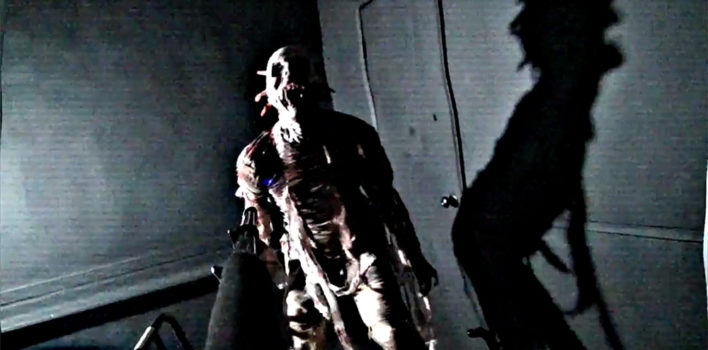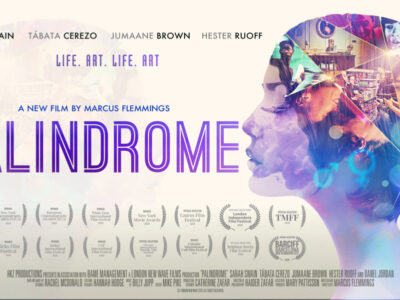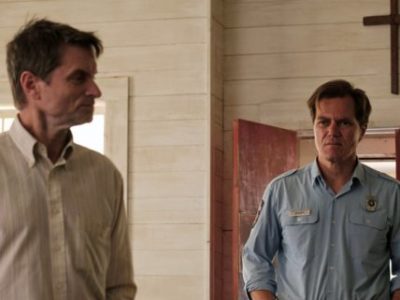Review| The Dark Tapes (2017)
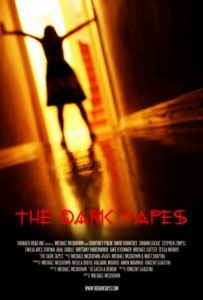 When anthology horror is executed well, it can be one of the most satisfying sub-genres of horror to witness. There is something cathartic about divining a united thread running between (seemingly) dissonant stories—usually told by different writers and directors. Each story has its themes, its unique style, and distinct plotting and it’s the goal of the anthology horror film to connect them all conceptually. The balance that must be maintained is twofold: the film needs to build conflict and resolution and, yet, needs to allow the individual vignettes to have their own breathing room so they are not swallowed up within the film’s narrative drive.
When anthology horror is executed well, it can be one of the most satisfying sub-genres of horror to witness. There is something cathartic about divining a united thread running between (seemingly) dissonant stories—usually told by different writers and directors. Each story has its themes, its unique style, and distinct plotting and it’s the goal of the anthology horror film to connect them all conceptually. The balance that must be maintained is twofold: the film needs to build conflict and resolution and, yet, needs to allow the individual vignettes to have their own breathing room so they are not swallowed up within the film’s narrative drive.
Most anthology horror fails to achieve a satisfying overarching narrative, or what is usually termed: the wrap-around story. It’s a conceptual flaw. The filmmakers don’t quite find the uniting thread between the vignettes and then exploit that thread to make the wrap-around story work as a structural device for the whole film. It is not unusual to really love specific vignettes within an anthology horror film and not care for the film overall. Most of the older anthology horror films found their wrap-around story in some version of people telling stories to each other. It’s usually not as satisfying as a film, but at least it’s logically consistent. Simply put, the odds are against you as a filmmaker when you embark on creating anthology horror.
So when I say that The Dark Tapes’ actually finds more resonance with its wrap-around story than it does with its individual vignettes, it is more of a compliment than it may sound at first. Conceptually, The Dark Tapes attempts to explain its individual stories by using a very old theological argument about the ghosties, ghoulies, and long-legged beasties that are claimed to be present in our modern day. Demons can take the form of anything as a means of tempting or tormenting humans or by distracting them from the actual focus of their attention: their Creator.
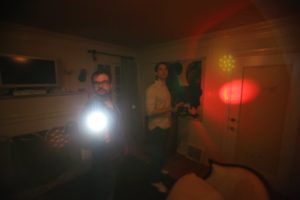 In other words, ghosts, aliens, spirits, even the atrocious evil humans do are just demons taking different forms to lead humanity astray. This is the concept used in the wrap around story as we follow two scientists (one who has a theology degree) and an accompanying filmmaker as they experiment with inter-dimensionality, time and, eventually, literal spiritual warfare. The final sound bite playing over the film’s credits is assumed to be a demon and he promises the demons will make it so humanity is never able to find out their true identity. Something that would be nicely within the scope of C.S. Lewis’ Screwtape Letters.
In other words, ghosts, aliens, spirits, even the atrocious evil humans do are just demons taking different forms to lead humanity astray. This is the concept used in the wrap around story as we follow two scientists (one who has a theology degree) and an accompanying filmmaker as they experiment with inter-dimensionality, time and, eventually, literal spiritual warfare. The final sound bite playing over the film’s credits is assumed to be a demon and he promises the demons will make it so humanity is never able to find out their true identity. Something that would be nicely within the scope of C.S. Lewis’ Screwtape Letters.
While I found the concept to be something that could truly be worked with as a satisfying story arch, the problem with the whole runtime of The Dark Tapes is its execution across the board.
The three individual vignettes revolve around a haunted house, occult activities and alien abduction. I am normally willing to forgive budgetary constraints when it comes to executing the effects and so forth if the narrative structure is unique and sound. However, each vignette is too derivative of horror fare that has already been done. The first vignette with the haunted house is probably the closest to being a unique story, but the double cross experienced is not earned and none of the characters’ back stories are given enough weight to make the audience care about any of their fates or the evil that befalls them. The other stories feel like retreads of past anthology vignettes like Kevin Smith’s “Halloween” in 2016’s Holidays or the ample number of abduction films that have come out. There is just very little here that draws us into the bigger story that the filmmakers are trying to tell.
Once again, derivative stories, too, can be forgiven, but there are significant editing choices made which end up cutting off actors’ lines and make the narratives feel rushed and make it too easy for the audience to be detached from the stories being told. These editing choices and the poorly implemented quick cuts affected the wrap-around story’s effectiveness as well. While conceptually strong, the script depends heavily on exposition instead of describing to us the concept in visual language. Add in sci-fi elements like multiple dimensions and theories of time that are not really needed along with the choppy editing and heavy exposition and the nuances of the overall narrative’s plot become nearly incomprehensible.
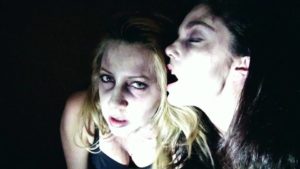 I am always excited to try out a new anthology horror film because the very idea allows for so much creativity, mutual respect and admiration between directors and writers, and the very human conceit of discovering a transcendent thread that unites all the disparate parts of our being and our stories. These can be very powerful and cathartic genre films to make if done well because they get at the desire for a bigger story that explains the reality we live in. Unfortunately, when these films are emotionally ineffective and poorly executed, they can become a stark reminder of how most days of our existence can feel: isolated, disparate and without transcendent meaning from moment to moment.
I am always excited to try out a new anthology horror film because the very idea allows for so much creativity, mutual respect and admiration between directors and writers, and the very human conceit of discovering a transcendent thread that unites all the disparate parts of our being and our stories. These can be very powerful and cathartic genre films to make if done well because they get at the desire for a bigger story that explains the reality we live in. Unfortunately, when these films are emotionally ineffective and poorly executed, they can become a stark reminder of how most days of our existence can feel: isolated, disparate and without transcendent meaning from moment to moment.


